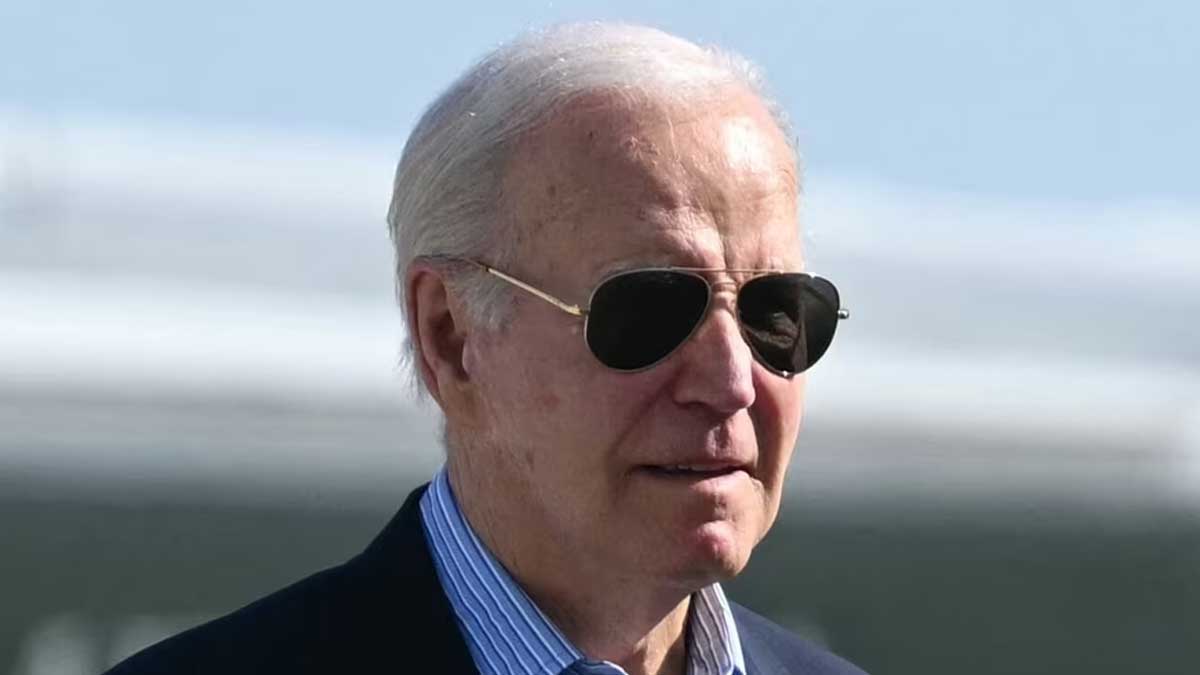- Home
- Billionaires
- Investing Newsletters
- 193CC 1000
- Article Layout 2
- Article Layout 3
- Article Layout 4
- Article Layout 5
- Article Layout 6
- Article Layout 7
- Article Layout 8
- Article Layout 9
- Article Layout 10
- Article Layout 11
- Article Layout 12
- Article Layout 13
- Article Layout 14
- Article Sidebar
- Post Format
- pages
- Archive Layouts
- Post Gallery
- Post Video Background
- Post Review
- Sponsored Post
- Leadership
- Business
- Money
- Small Business
- Innovation
- Shop
Recent Posts
Trump Extends Lead Over Biden in Post-Debate Polls

Former President Donald Trump is widening his lead over President Joe Biden in almost every national poll conducted after their pivotal debate on June 27. According to Real Clear Politics’ poll tracker, Trump is ahead in 11 of 12 surveys, demonstrating a significant shift since the debate. He leads Biden by 3.3 points, up from 1.5 points prior to the debate. In FiveThirtyEight’s tracker, Trump’s lead is 1.6 points. A recent Emerson College poll, conducted from July 7-8, shows Trump with a three-point advantage over Biden. Similarly, Morning Consult’s weekly survey places Trump two points ahead. The New York Times/Siena College survey, covering Friday to Tuesday, gives Trump a six-point lead, marking his widest margin in any poll by these organizations since he began his first presidential campaign in 2015. This is a three-point increase from a week earlier.
The Wall Street Journal’s post-debate poll also finds Trump leading Biden by six points, the largest gap in their surveys since 2021. This represents a four-point increase in Trump’s lead since February. In seven critical battleground states, CBS/YouGov’s poll shows Trump ahead by three points, reversing the one-point deficit he faced last month. The debate is seen as a crucial moment in the 2024 election cycle, with 16% of voters open to changing their vote based on the candidates’ performances, as revealed by a Quinnipiac University poll.
Despite calls from several Democratic leaders, pundits, and news outlets for him to step down, President Biden has firmly resisted resigning. As of Tuesday, Biden has managed to counter these pressures. No new lawmakers have joined the call for his resignation recently, and Rep. Jerry Nadler, who had previously called for Biden to resign privately, has now publicly supported him. In a letter to congressional Democrats, Biden addressed the issue, emphasizing that it’s time to move past the debate and focus on the election.
There remains uncertainty about how potential replacement candidates would fare against Trump if Biden were to withdraw. Polls suggest that Vice President Kamala Harris, the most likely replacement, could perform better than other potential Democratic candidates such as California Gov. Gavin Newsom or Michigan Gov. Gretchen Whitmer. However, Harris’s performance is similar to Biden’s in some surveys, with no clear consensus on who would perform better in a general election. The impact of a new candidate’s campaign efforts remains unknown, as they wouldn’t benefit from Biden’s established national recognition.
Pre-debate polls consistently showed Trump leading Biden in the seven key swing states, all of which Biden won in 2020, except North Carolina. A May Cook Political Report survey found Trump ahead by three points on average in these states. Bloomberg/Morning Consult’s May poll indicated Trump leading by four points overall across the battleground states. An April New York Times/Siena/Philadelphia Inquirer poll predicted Trump would win five out of six swing states, excluding Wisconsin.
Robert F. Kennedy Jr.’s independent run could influence the election, though it’s unclear which candidate would benefit. A May Emerson poll showed Trump’s lead over Biden widening from two to five points with Kennedy Jr., independent Cornell West, and Green Party candidate Jill Stein in the mix. Kennedy Jr. garnered 6% support, with 10% of voters undecided. Fox’s May poll also indicated Trump’s lead increases with these independent candidates. Kennedy’s support is notable among younger and Hispanic voters, though his overall impact remains uncertain.
Recent polls indicate that Biden and the Democratic Party are losing support among key demographics, including Black, Latino, and younger voters. A May NPR/PBS/Marist survey found a close race among voters under 45, with Biden’s lead narrowing to four points. Among Gen Z and millennials, Biden initially leads but loses ground with the introduction of third-party candidates. The April Times/Siena/Inquirer poll also noted Biden’s support is tied with Trump among Hispanic voters and trailing among 18-29-year-olds in several battleground states, groups that supported Biden strongly in 2020.
As Biden and Trump prepare for a historic rematch following their early nominations, voter enthusiasm is at a historic low, with both candidates maintaining favorability ratings below 45%. Trump’s campaign has focused on his legal battles, accusing the judicial system of acting at Biden’s behest, though evidence for this claim is lacking. Meanwhile, Biden portrays Trump as a threat to democracy, citing the January 6 Capitol riots and Trump’s role in appointing Supreme Court justices who overturned Roe v. Wade. Polls highlight that key issues for voters include the economy, immigration, abortion, and inflation, with Trump leading Biden on economic and conflict management, while Biden fares better on abortion issues.
Recent Posts
Categories
- 193cc Digital Assets2
- 5G1
- Aerospace & Defense46
- AI37
- Arts3
- Banking & Insurance11
- Big Data3
- Billionaires449
- Boats & Planes1
- Business328
- Careers13
- Cars & Bikes76
- CEO Network1
- CFO Network17
- CHRO Network1
- CIO Network1
- Cloud10
- CMO Network18
- Commercial Real Estate7
- Consultant1
- Consumer Tech180
- CxO1
- Cybersecurity68
- Dining1
- Diversity, Equity & Inclusion4
- Education7
- Energy8
- Enterprise Tech29
- Events11
- Fintech1
- Food & Drink2
- Franchises1
- Freelance1
- Future Of Work2
- Games141
- GIG1
- Healthcare78
- Hollywood & Entertainment186
- Houses1
- Innovation42
- Investing2
- Investing Newsletters4
- Leadership65
- Lifestyle11
- Manufacturing1
- Markets20
- Media193
- Mobile phone1
- Money13
- Personal Finance2
- Policy567
- Real Estate1
- Research6
- Retail1
- Retirement1
- Small Business1
- SportsMoney33
- Style & Beauty1
- Success Income1
- Taxes2
- Travel10
- Uncategorized8
- Vices1
- Watches & Jewelry2
- world's billionaires418
Related Articles
Trump Moves $4B Stake in Truth Social Parent, Stock Drops 6%
Donald Trump recently transferred his 57% stake in Trump Media & Technology...
By 193cc Agency CouncilDecember 20, 2024House Rejects Trump-Backed Funding Bill, Shutdown Looms
The U.S. House of Representatives rejected a new government funding bill on...
By 193cc Agency CouncilDecember 20, 2024Trump Named Time’s Person of the Year for Second Time
On Thursday, Time magazine honored Donald Trump as its “Person of the...
By 193cc Agency CouncilDecember 12, 2024Meta Donates $1 Million to Trump’s Inaugural Fund
Meta, the parent company of Facebook and Instagram, has confirmed a $1...
By 193cc Agency CouncilDecember 12, 2024















Leave a comment